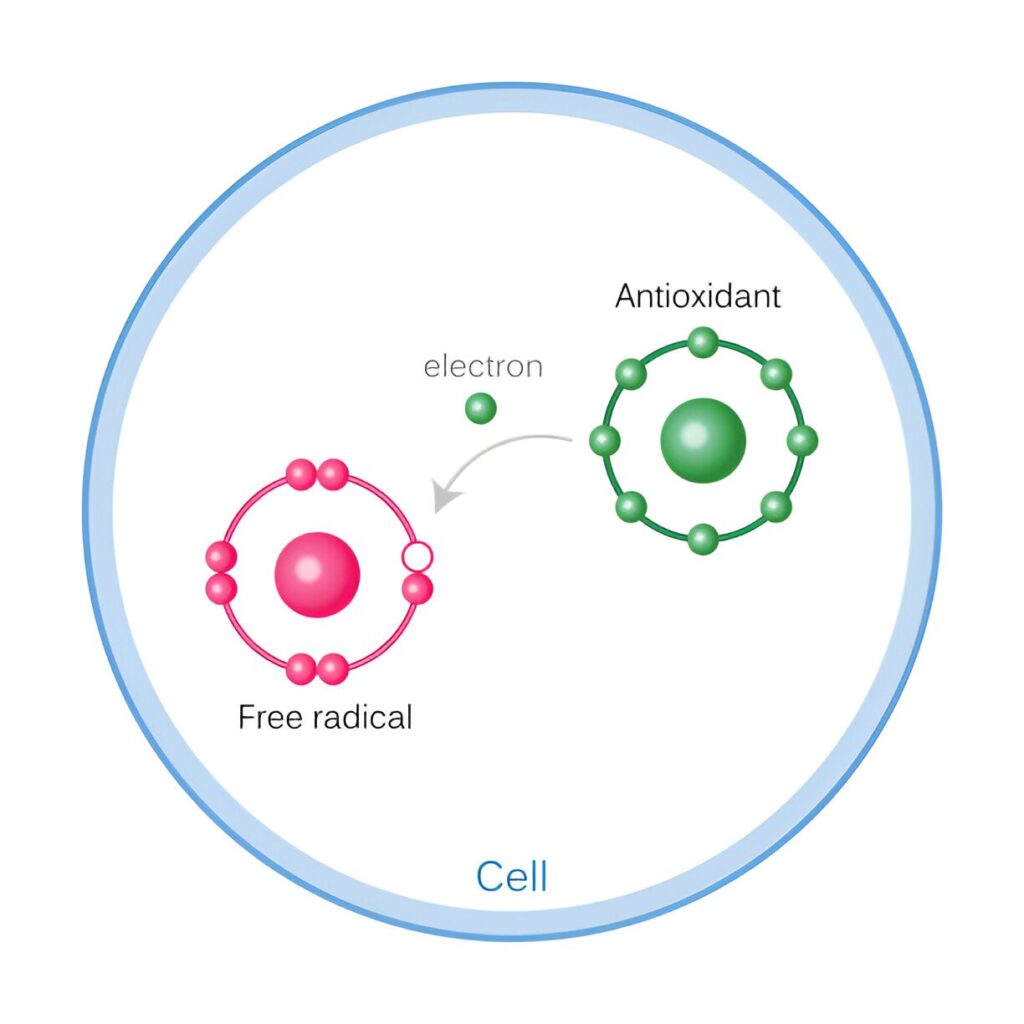Every three seconds, someone is diagnosed with dementia (Alzheimer’s Symptoms), according to the World Health Organization(WHO). In 2020, over 55 million people aged 65 and older worldwide were living with dementia. As the population of people aged 65 and above grows, especially in the US, the incidence of dementia is expected to rise. Annually, there are more than 10 million new cases of dementia.
Alzheimer’s disease, a neurological disorder, gradually kills brain cells, diminishing cognitive function and mental abilities. With the increasing likelihood of this disorder, finding ways to prevent dementia is critical. The ketogenic diet has shown promise in preventing Alzheimer’s, but there’s exciting news: consuming berries can help alleviate Alzheimer’s symptoms. If you’re seeking tips to reduce dementia symptoms, you’ve come to the right place. This blog will explore the potential of berries as a natural solution for Alzheimer’s.

1. Overview of Alzheimer’s Disease
Alzheimer’s disease is a progressive neurodegenerative disorder, a form of dementia, that starts with subtle memory loss, cognitive decline, and behavioral changes. It’s the leading cause of dementia in older adults. The disease worsens over time, impairing an individual’s ability to perform daily tasks. Brain plaques and tangles, made of beta-amyloid and tau proteins, disrupt neuron communication, leading to brain shrinkage and cell death.
2. Current Treatments and Their Limitations
While medications can temporarily ease symptoms and slow disease progression, there is no cure for Alzheimer’s. Common treatments include cholinesterase inhibitors (e.g., donepezil, rivastigmine) and memantine. These drugs manage symptoms but often cause side effects like nausea, diarrhea, and sleep disturbances. Effectiveness varies from person to person, highlighting the need for alternative and complementary treatments.
3. Berries, Mitochondrial Function, and Urolithin A
Berries are rich in polyphenols and play a crucial role in supporting mitochondrial function. In berries such as pomegranates and raspberries, a compound called urolithin A, derived from polyphenols, enhances mitochondrial functions. Urolithin A promotes mitophagy, the process of removing damaged mitochondria, and improves mitochondrial efficiency. This leads to better cellular health and energy production, vital for brain function. Maintaining good mitochondrial health can protect against neurodegenerative disorders like Alzheimer’s disease.
4. Nutritional status of Berries
4.1 Types of Berries

Berries have good taste and are full of essential nutrients.
Types of berries include:
- Blueberries: Have high antioxidant content.
- Strawberries: High content of vitamins and fiber.
- Raspberries contain dietary fiber and vitamins.
- Blackberries provide vitamins, minerals, and antioxidants.
Each type is unique due to its versatile inclusion in the diet.
5. Nutrients in Berries

5.1 Antioxidants
Antioxidants like anthocyanins and flavonoids are present in berries that help to release stress and inflammation (symptoms of neurodegenerative disorders like Alzheimer’s. Antioxidants in berries improve gut and brain health, protecting cell breakage due to their ability to neutralize free radicals.
5.2 Vitamins
Essential vitamin C and Vitamin K are present in Berries. Vitamin C has a role in building immunity functions and skin health. Additionally, Vitamin K helps in blood clotting and bone health. These vitamins support brain functions and cognitive health.
5.3 Fiber
Dietary fiber in berries promotes a healthy digestive system and maintains a healthy gut microbiome. There is a link between gut health and brain health, according to modern research, which means a balanced microbiome can improve cognitive function.
6. Scientific Evidence Supporting Berries and Brain Health
6.1 Animal Studies
According to research on animals, berries can improve cognitive function and reduce brain inflammation. For example, studies on mice have revealed that diets including berries lead to better memory and mental capacity. So, Berries consumption is good for brain health and reduces dementia disorder.

6.2 Human studies
According to the New Jersey Agricultural Experiment Station, a study conducted with young and older, they consumed blue that increased blood flow to the brain areas and improved memory and attention to regular tasks. Children showed an increased memory test when they consumed smoothies made with berries compared to those who drank no-berry smoothies.
6.3 Mechanisms of Action
The beneficial compounds in berries with high antioxidants that reduces oxidative stress Penh, enhance neuronal communication, and avoid brain cell damage. The health of neurons is maintained, and effective communication between brain cells is promoted due to improved synaptic plasticity.
7. How Berries Benefit Alzheimer’s Patients
7.1 Cognitive Function
Berries have several advantages, but one of the biggest is improving cognitive performance. Regular berry consumption has been linked to enhanced brain function, including memory and attention. Berries enhance synapse plasticity and are essential for memory and learning. Berries include antioxidants that shield neurons from harm, promoting improved neuronal function and communication.

7.2 Mood and Behavioral Symptoms
People living with Alzheimer’s have symptoms of mood swings, anxiety, and depression. With their potent antioxidant content, Berries reduce these symptoms by releasing brain oxidative stress and inflammation. Better behavior and attitude can positively improve the quality of life of Alzheimer’s patients.
7.3 Overall Brain Health
Berries improve neural communication, better cerebral blood flow, and protect against neurodegeneration; all factors contribute to general brain health. This makes them essential to the diet for anyone trying to improve brain health—berries with polyphenols that help in neurogenesis, producing new neurons and maintaining cognitive function.
8. Practical Ways to Incorporate Berries into Your Diet
8.1 Daily Intake Recommendations
Eat a full of berries every day, as advised by experts, if you want to know the health advantages of berries. This can be accomplished by including berries in your diet for snacks or meals.

8.2 Easy Recipes and Snack Concepts
- Berry Smoothies: You can blend your favorite berries with yogurt and a little milk for a delicious and nutritional smoothie. Kale or spinach can be added for additional nutrition.
- Berry Parfaits: Layered berries and granola is a quick and healthy breakfast or dessert. Topping with honey and almonds for better texture and taste.
- Salads: spinach, almonds, and vinaigrette(an oil or vinegar-based dressing) will be a refreshing lunch. Fresh berries will have a more vibrant taste with extra nutrients.
- Snacks: A handful of dried and fresh berries with nuts or seeds is quick and easy.
9. Potential Risks and Considerations
9.1 Allergies
Although berries are safe for most people, they can be allergic to some individuals. Allergy symptoms can be itching, skin irritation, swelling, and difficulty breathing. It’s important to be aware of specific allergies in your body and consult a doctor if needed.
9.2 Interactions with Medications
Different compounds in berries can interact with medication treatments. Rich Vitamin K affects the blood thinners; for example, if you take medication, it’s good to discuss it with your dietitian and healthcare provider.
10. Conclusion
In conclusion, berries in your diet can be tasty and effective for your gut and brain health and lessen the symptoms of Alzheimer’s disease. More research is needed to understand its impacts, but current information is still insufficient. Why not include a handful of berries in your diet? It’s a little step that will make a huge difference. Be more mindful of food and its science and gain interesting knowledge.
11. FAQs
Do berries have a complete cure for Alzheimer’s?
No, eating berries cannot wholly cure Alzheimer’s, but they can help reduce symptoms and better brain function with their high antioxidant content.
Which type of berry can be more crucial for Alzheimer’s disease?
All berries have beneficial nutrients and properties and can contribute to improved cognitive health, but Blueberries often have attention to their high content of antioxidants,
How often can someone with Alzheimer’s eat berries in their diet?
It’s recommended to include berries in the diet every day to increase their potential benefits.
Are there any side effects of consuming too much berries?
If you are consuming berries in excess, it can cause digestive issues.
Can other foods help to reduce symptoms of Alzheimer’s patients?
Yes, other foods like leafy greens, seeds, and nuts can improve brain health and reduce Alzheimer’s symptoms

